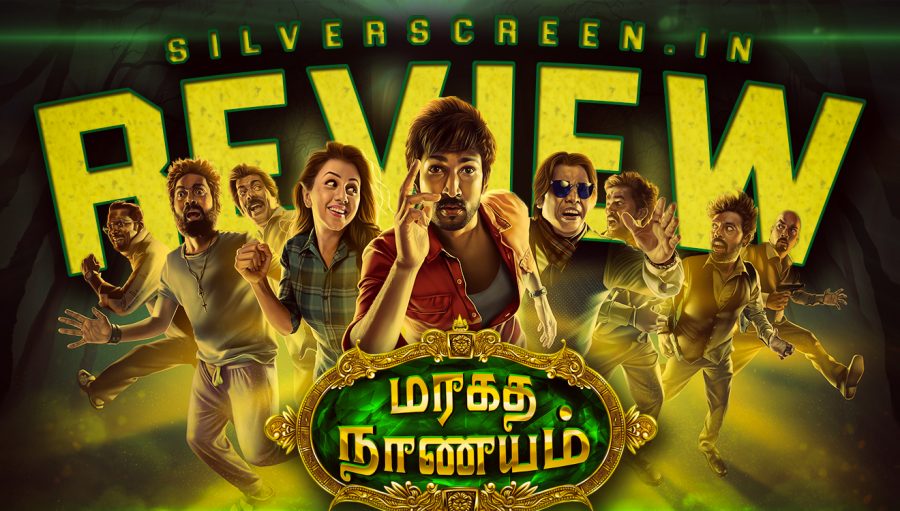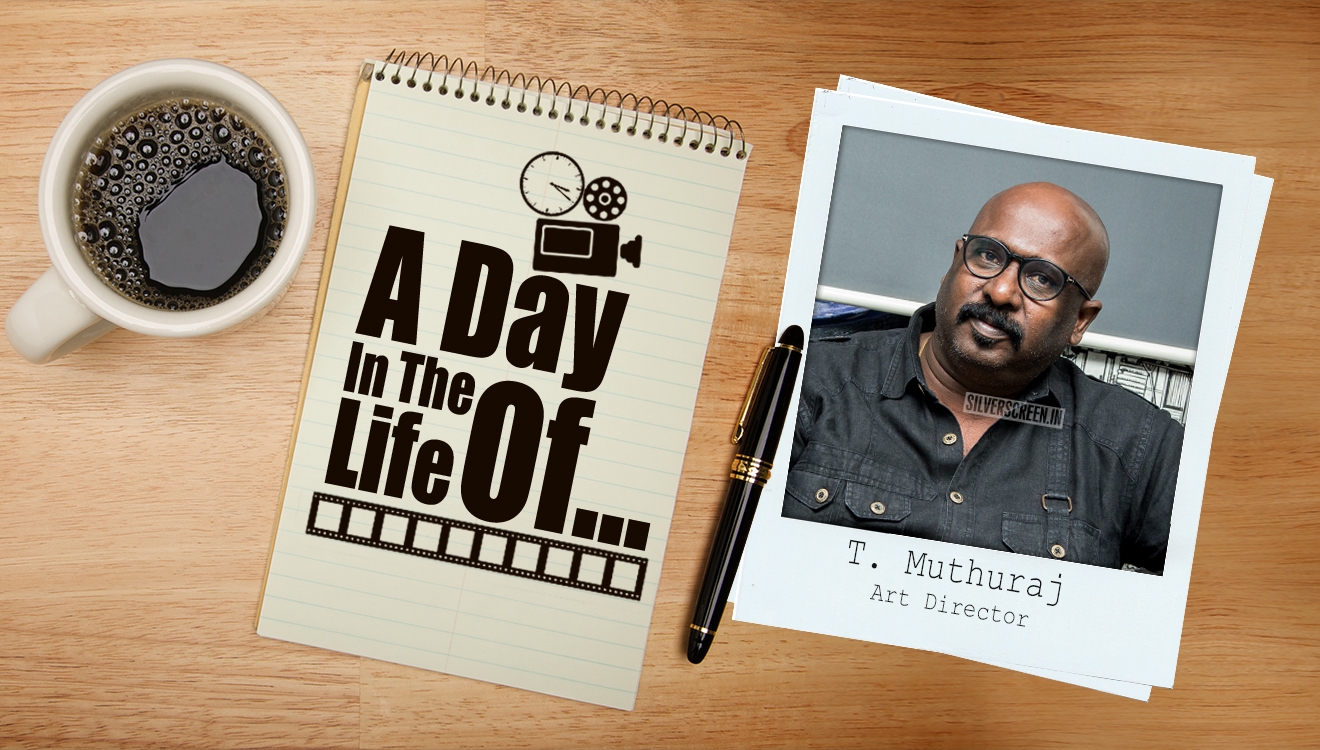Before we get fully into this Maragatha Nanayam review, a question slash observation.
What is with thriller-horror-ghost movies in Tamil, of late, which treats its women way better than the masala films? Or is this purely luck of the draw? Have the last few films I’ve seen turned down the sexism, misogyny, etc., considerably?
Sivalinga had no protracted, creepy, stalking scenes in the name of love. Dora almost passed the Bechdel-Wallace test. Lens actually went all moral-high-ground on how to treat women. Enga Amma Rani is also a ghost-possession story, and although its ending was unnecessary and clumsy, and kills off the one woman character in the film, the death is entirely at the hand of the woman herself.
Rangoon too – for its genre – had reduced levels of creepy man-stalking-pretty girl cliches.
It is almost expected of Tamil cinema to harass a “wild horse” woman, to tame her and make her “suitable” to the hero’s needs. After all, it’s difficult to escape years of conditioned behaviour and deeply entrenched systems.
And so, Maragatha Nanayam has a spot of friendly creepiness, a dash of concerned sexism, and a pinch of well-meant oppression. But this is quickly disposed off in the first few minutes of the film, and we can settle into a funny tale of ghostly spirits.
*****
Maragatha Nanayam has no hero meets heroine scene. By the time the titles have rolled past and we see the hero, it is almost canon that he has “seen” the girl, and that love has come. But he is after a much larger quest, and we might be spared a long-drawn courtship after all. True, the next few bits involve hero loitering near the bus stop where heroine waits for her transportation. And yes, this is very creepy. This is a throwback to, and a distilling of every such scene we’ve seen over the years.
And so, while you are bracing yourself for a showdown, and a song sequence referencing body parts and edible items; a twist. Not entirely good. We are told that the heroine is engaged to be married to some man. She’s now someone else’s possession, and that man has marked his boundary.
Just to rub the point in, we soon see that the woman married the wrong man, and Tamil cinema conditioning tells us to root for the hero-turned-avenging angel as he tries to rescue the heroine, purely out of selfless motives.
There is no time though.
Hero needs one big heist to pay off creditors, and settle scores. And as luck would have it, news of a big deal involving “beddha kallu” comes their way. And so, hero abandons ideas of love, gets together a band of friendly, eccentric ghosts, and goes after treasure.
*****
Maragatha Nanayam takes the modes of Tamil cinema’s ghost-possession-haunting films, and flips them over. The writer, the director, the cast, no one takes themselves or the genre too seriously, and this allows them to play with and around the idea of ghosts and spirits.
It is written so well that the funny is both in the situation, and in the lines. There are throw away gags, one-liners, and slightly extended funny situations that require the actors to get their timing perfect. And they do. Everyone of them.
Munish Kanth as Ramadass, and later as Chidambaram’s ghost in Ramadass’s corpse, Anand Raj as Twinkle Ramanathan, MS Bhaskar, Aadi, Nikki Galrani, Daniel – all share their time on screen equally, and do as much as the others to keep the film going. At no point does the screenplay stop to let hero and heroine sing love songs to each other. Not even in the hero’s dreams.
And this, segueing back to the opening bits about treating women better, is great. The writer – ARK Saravan – doesn’t believe a hero needs romance. Or that “love failure” will require him to sprout a stubble, down a few pegs, and go harass the girl at night. There’s a moment of frustration when the hero realises he could have saved the woman he loved but that moment passes and the quest takes over. At this point in most hero films, the woman would completely drop off the screen, and off the plot. However, in Maragatha Nanayam, the actress is just getting started.
*****
Can I digress here a bit to point out that for a film that’s written so well, just the tiniest bit of extra diligence – even a Wikipedia glance – would have added so much more depth. A sort-of animated sequence, as the film’s opening titles roll, tells us a bit of the backstory. Did I hear correctly that they attribute 1100 AD to the Pallava empire? The Pallava dynasty had ceased to exist by the end of the 10th century, and its big cities and ports subsumed into the Chola kingdom. The hi-story also names the king associated with the Maragatha Nanayam: Irumporai. However, that’s a Chera dynasty name. While the Cheras did occasionally battle with the Pallavas, the two dynasties were for most parts, separated by both time and distance.
But if it is indeed Irumporai – the Chera King – who is the malevolent spirit in the story, the names of the hero and friend – Senguttuvan and Ilango – are a nice touch. Brothers according to legend, and brothers-in-arms in the film – Senguttuvan and Ilango are the Chera scions who can restore the glory of the dynasty, to its rightful place.
But wait, what is the heroine’s name? Chanakya? Why? Which universe and mythology, language and culture, are they sourcing this name from? Although I did recall her name – I was unsure. Surely for a film with such Tamil characters, they wouldn’t call the heroine Chanakya!
*****
Recommended
The weakest link in this film is the rather tepid action sequence. By which I mean, the car chase. Yes, the hero’s victory is assumed, taken for granted. However, shouldn’t there be at least some tiny surge in adrenaline? A quickening of pace? A tightening of shots to better highlight the potential menace?
*****
Maragatha Nanayam is a lovely film. With more care, it could have been a great, fun film. But perhaps it is a lovely film for that very reason: it doesn’t care much. For genre conventions, for industry regulations, and for anything approaching historical accuracy.
*****
The Maragatha Nanayam review is a Silverscreen original article. It was not paid for or commissioned by anyone associated with the movie. Silverscreen.in and its writers do not have any commercial relationship with movies that are reviewed on the site.



